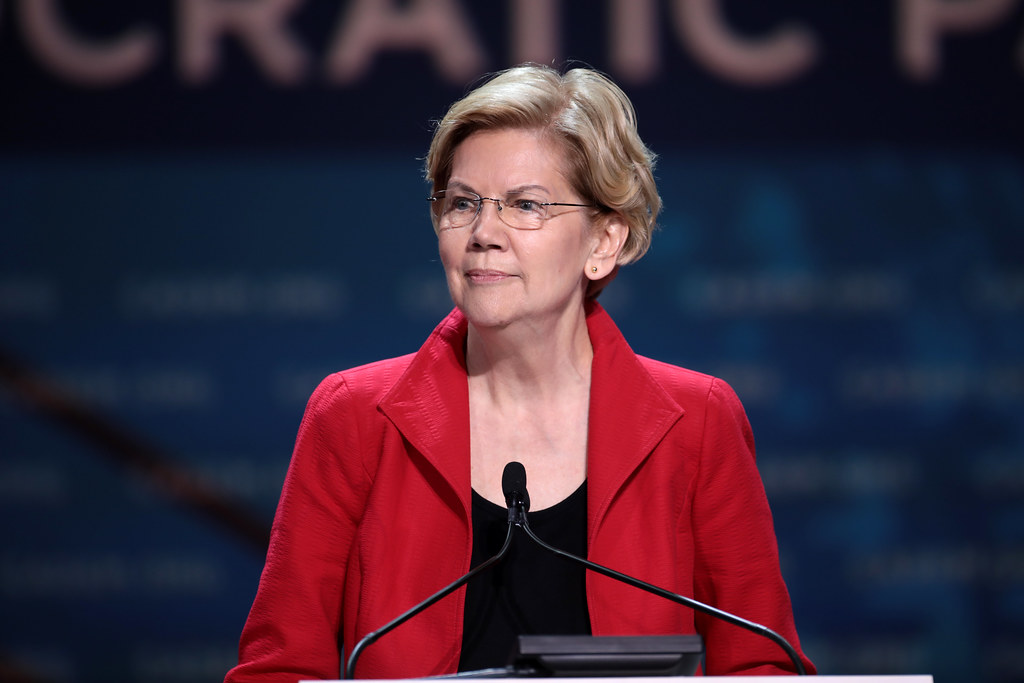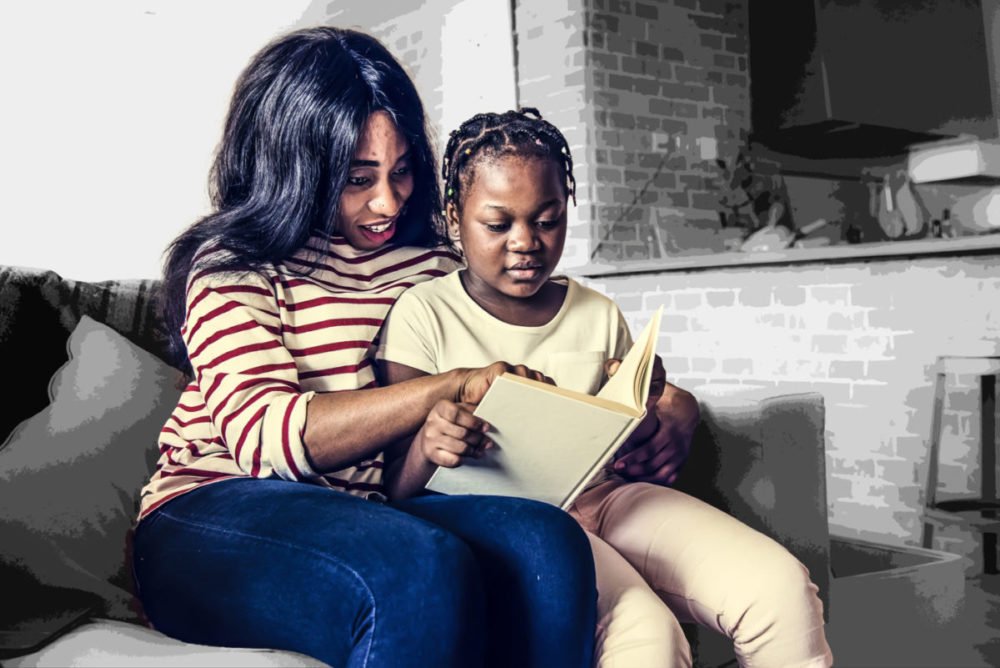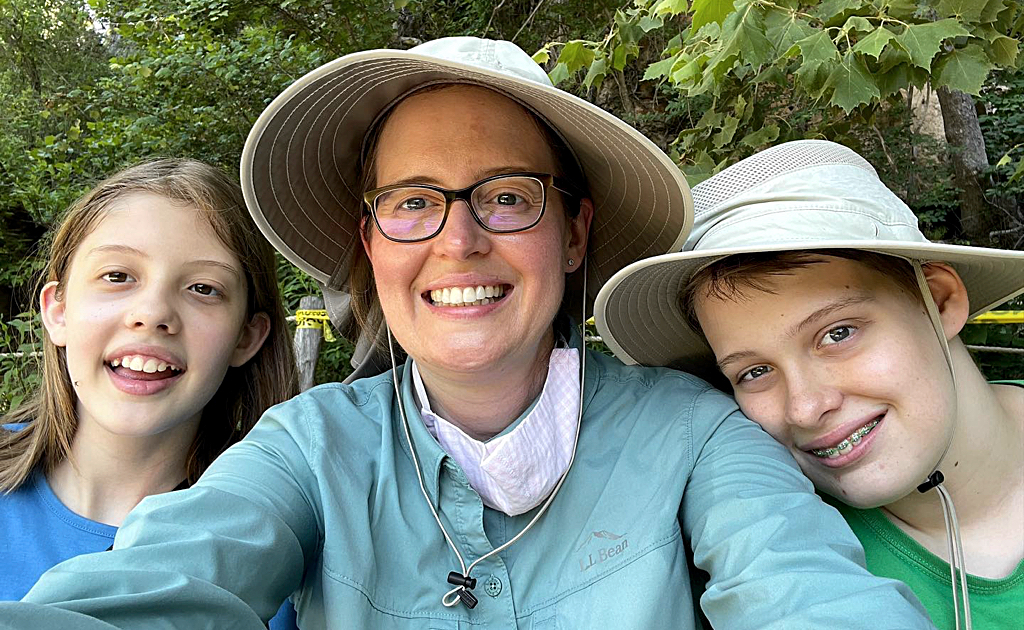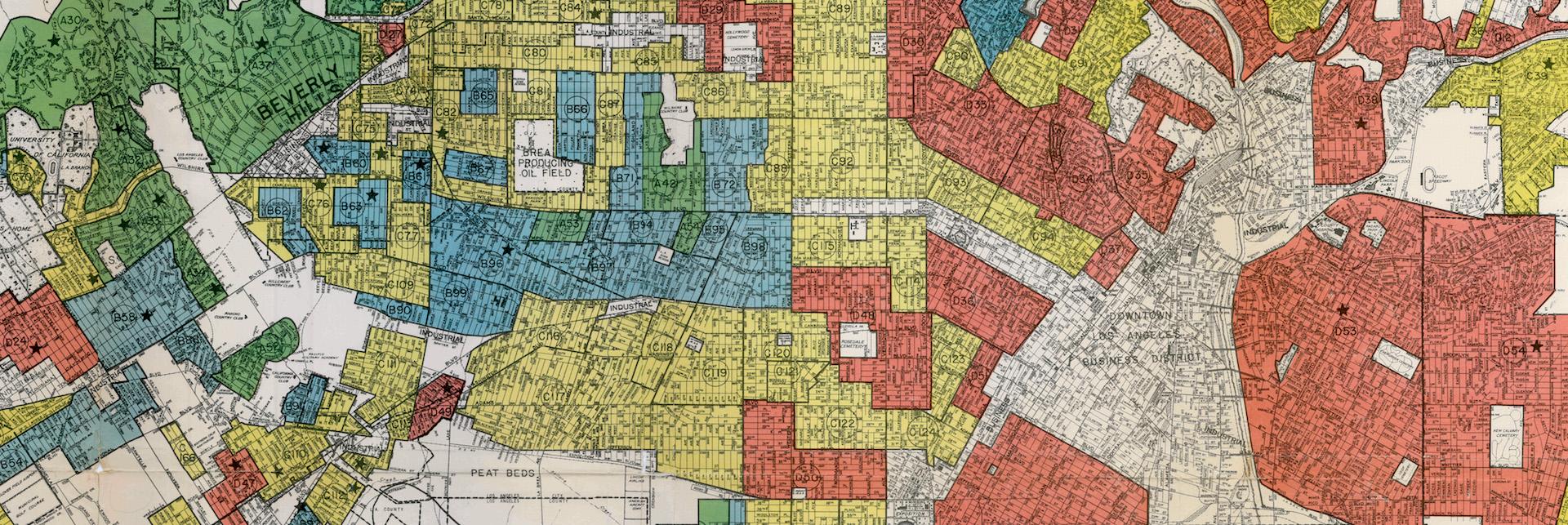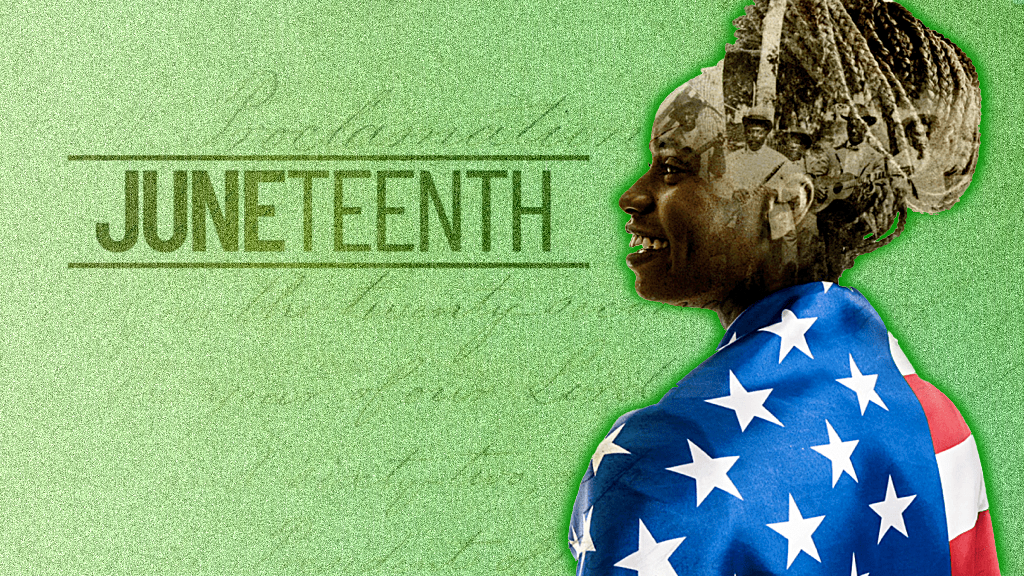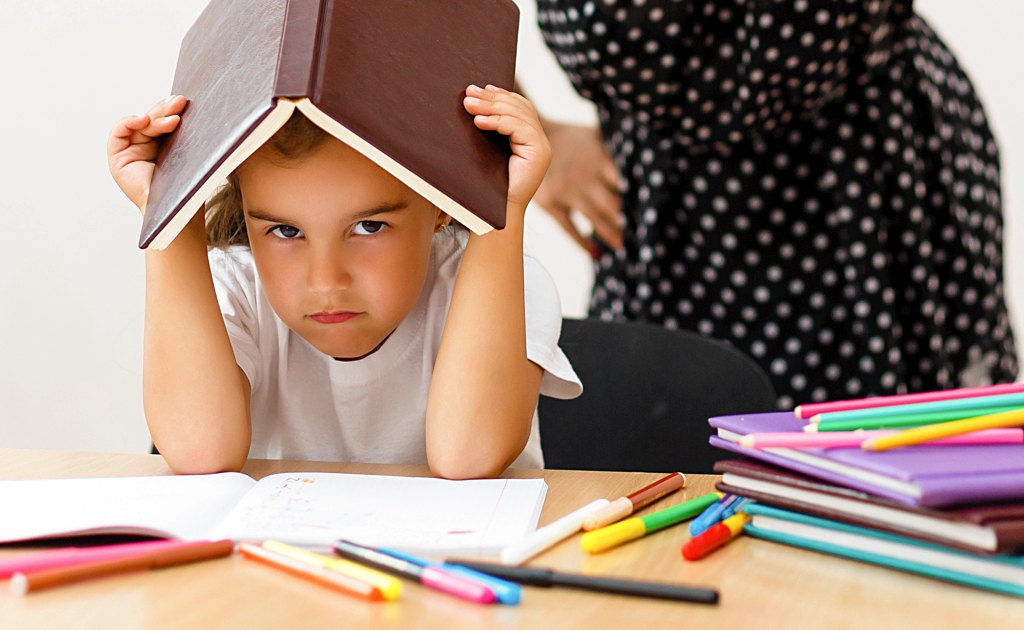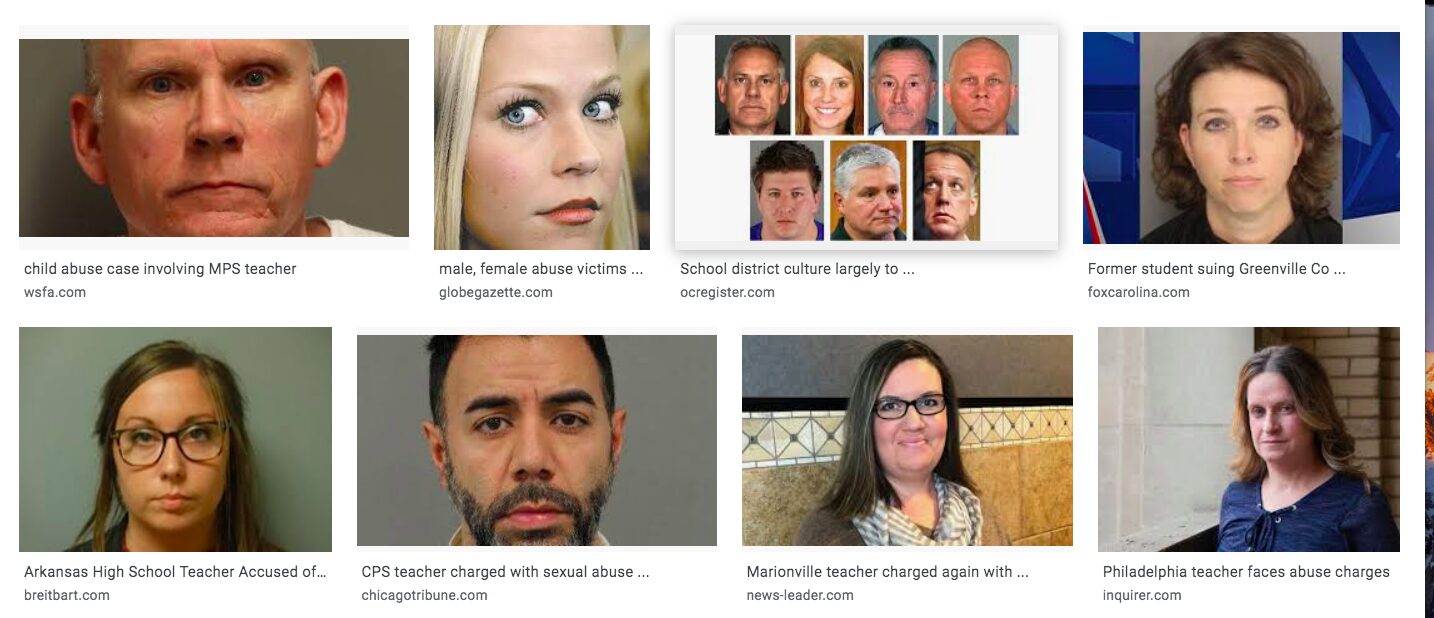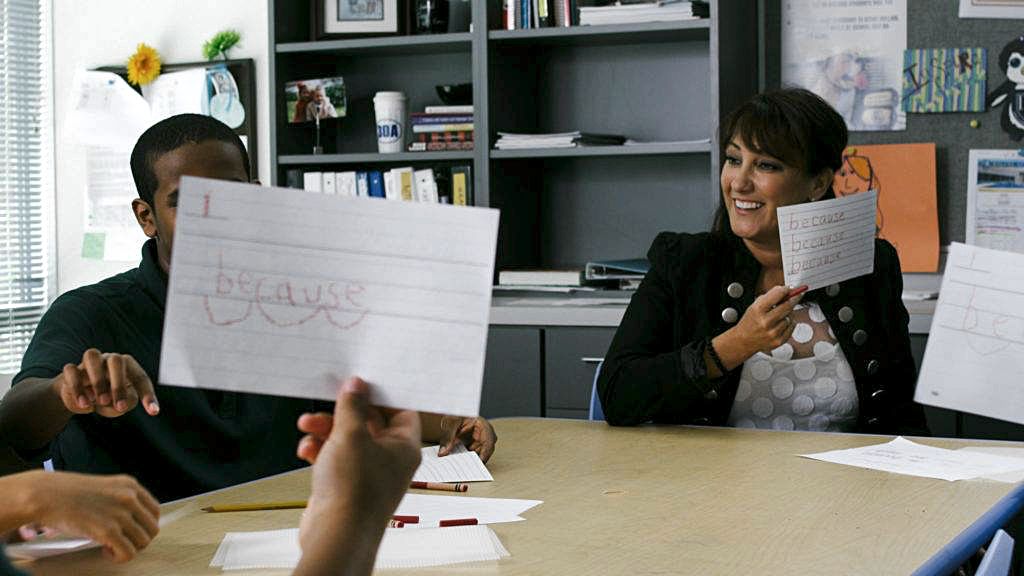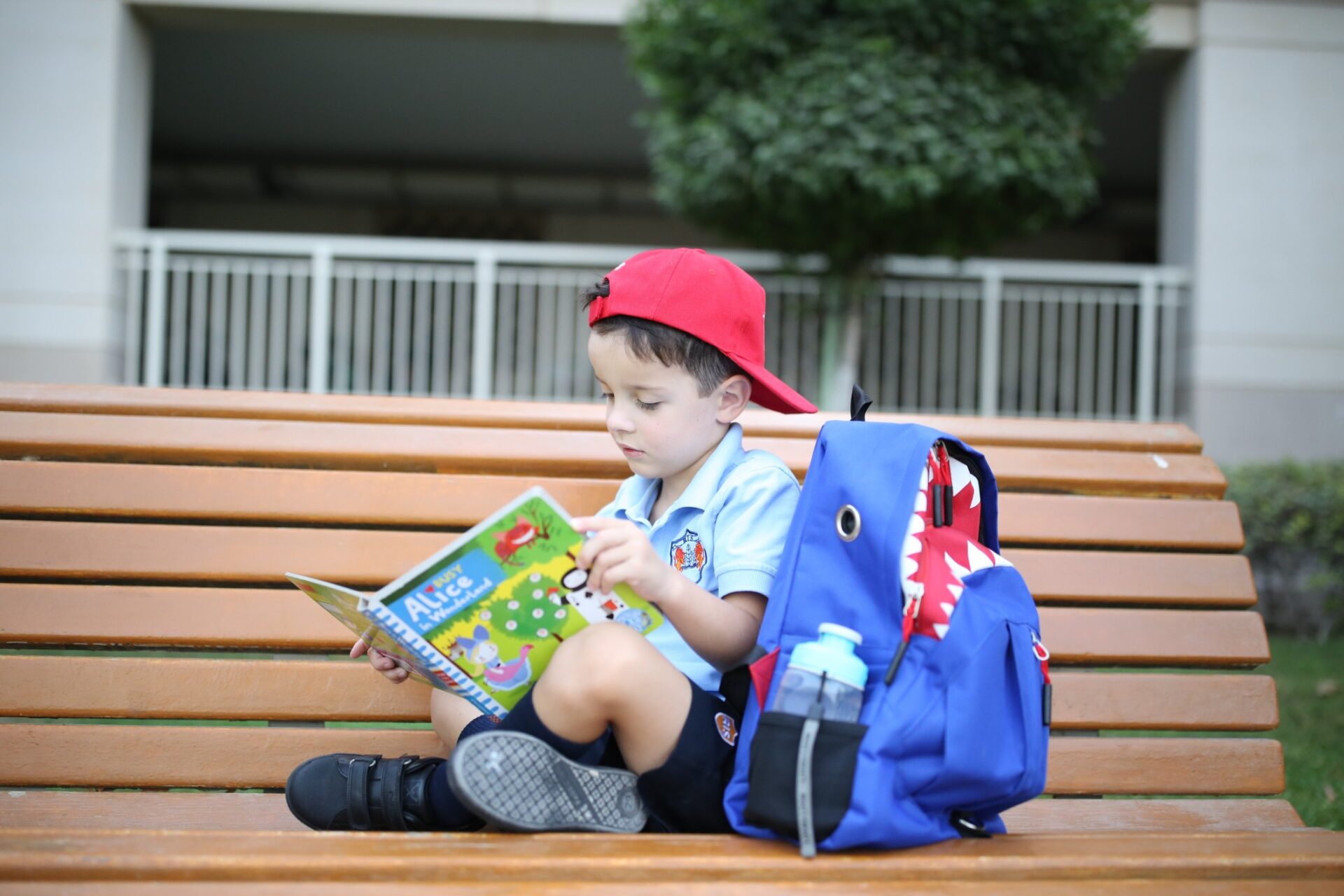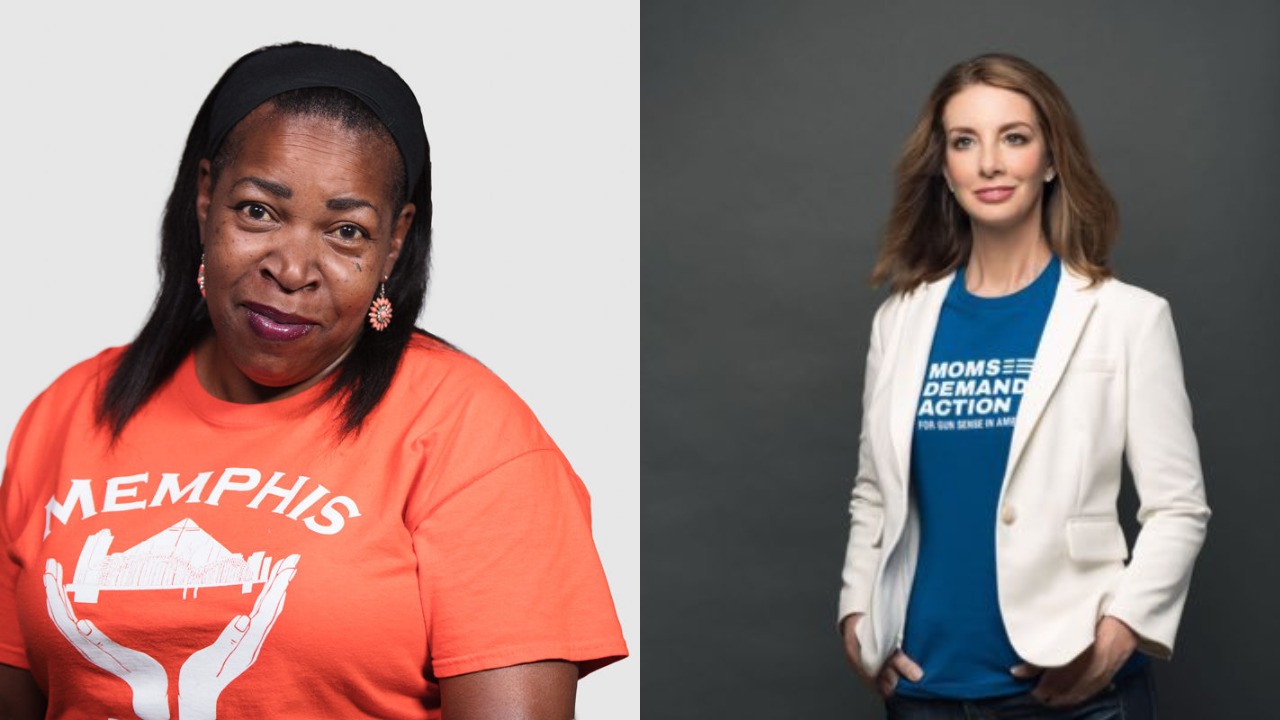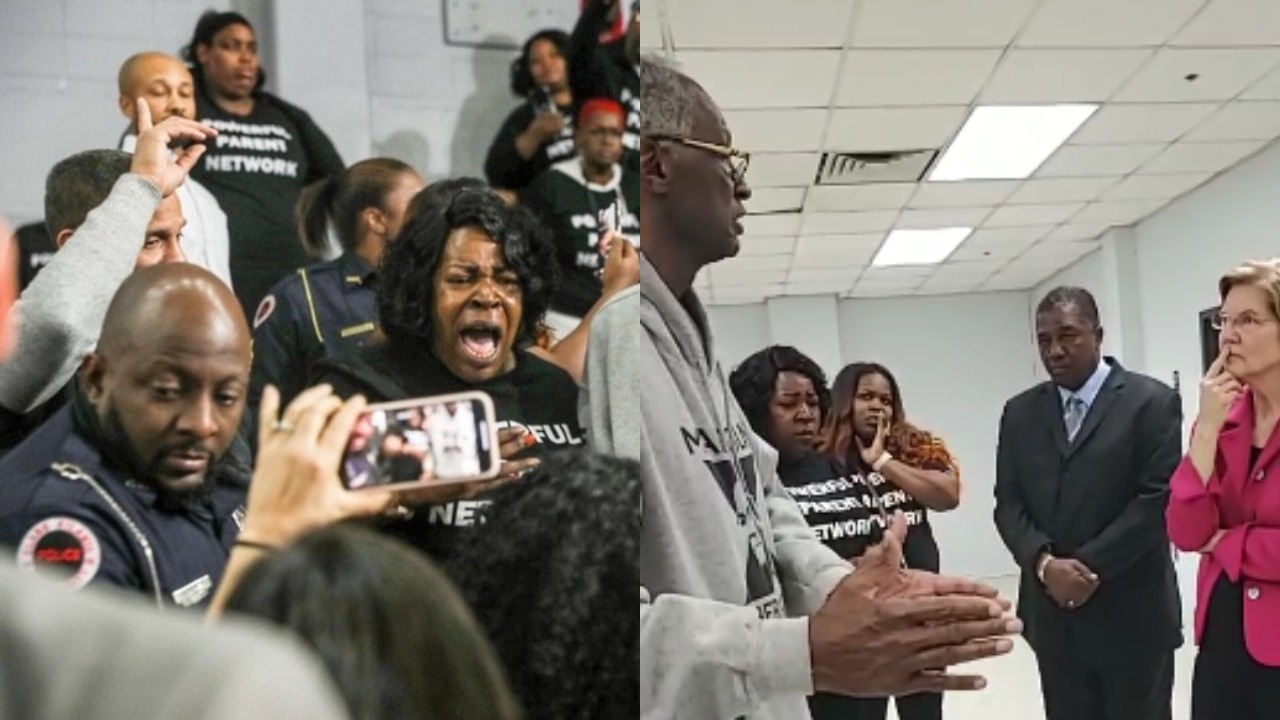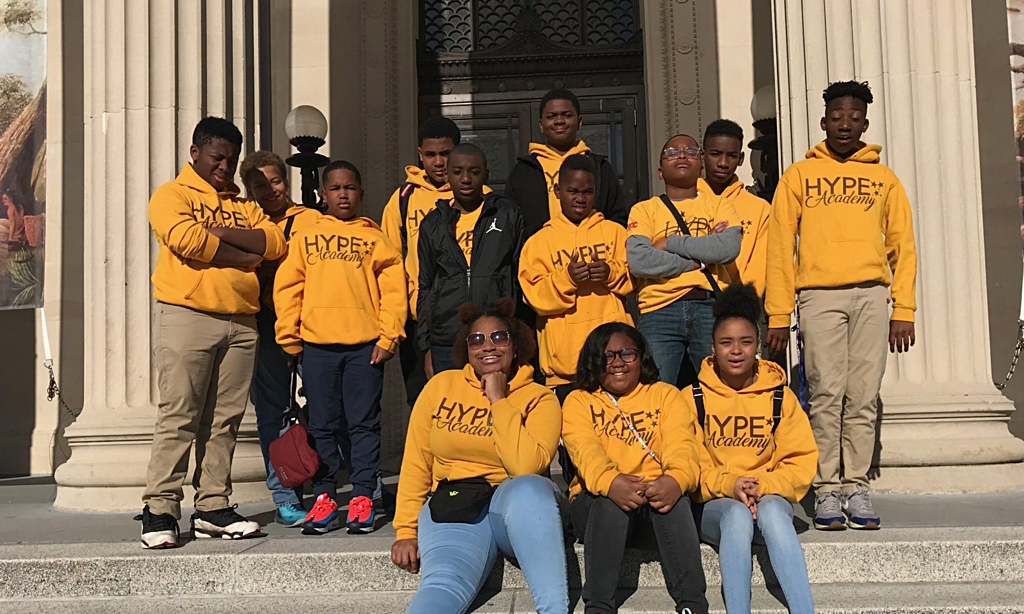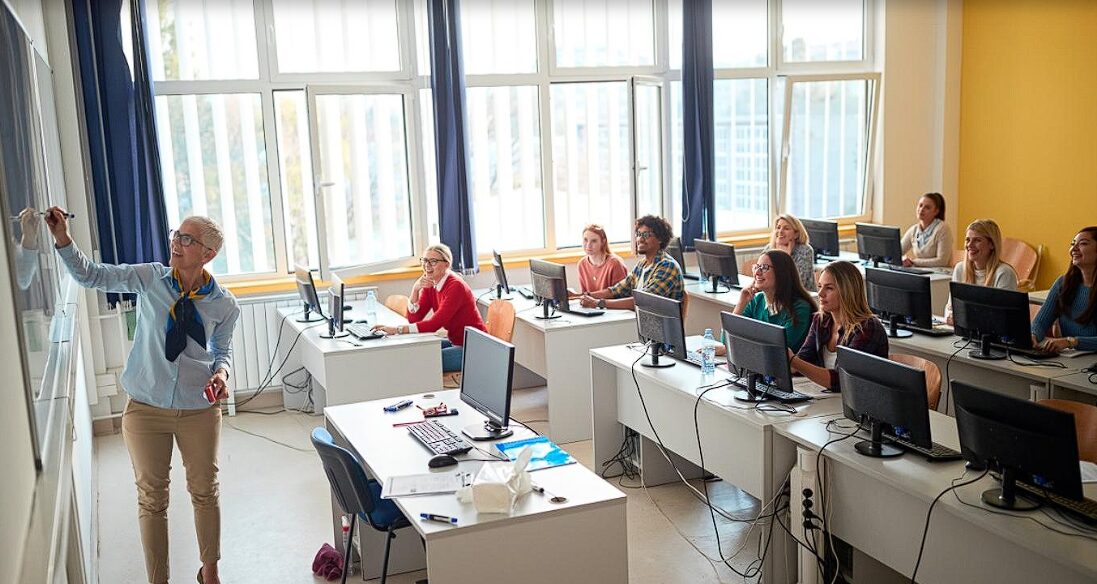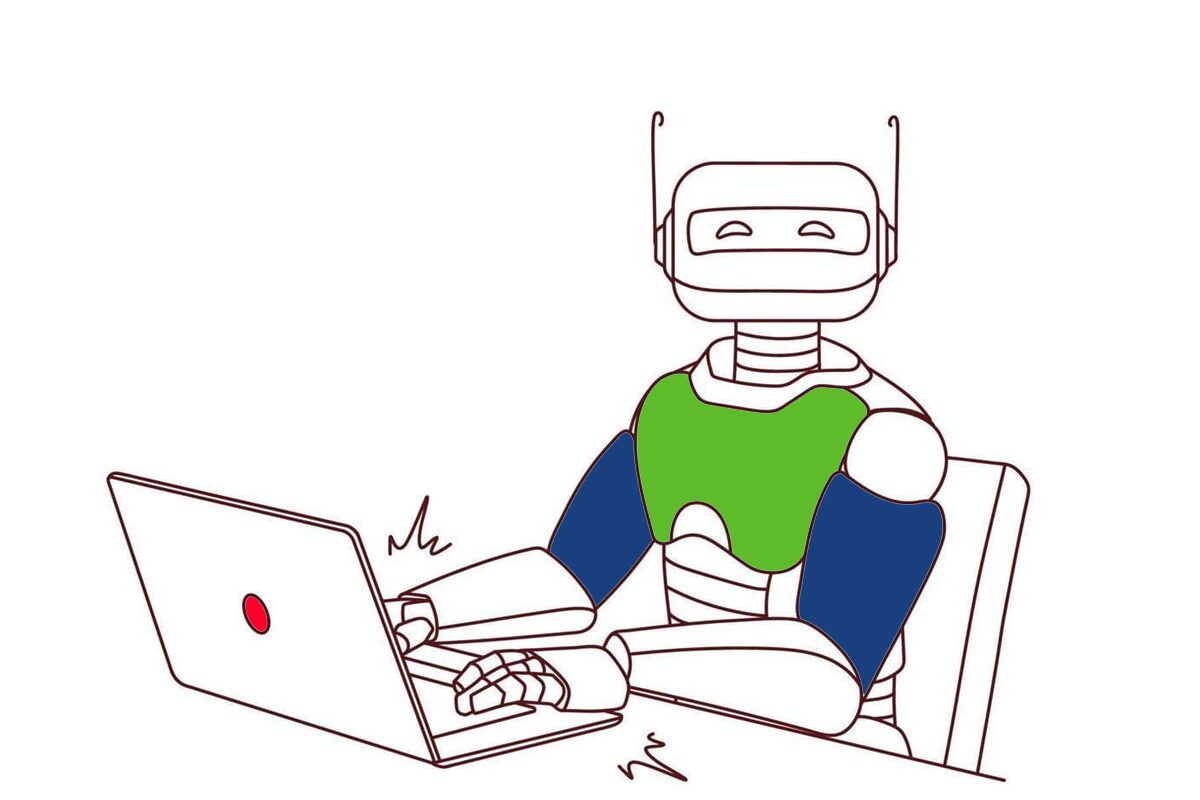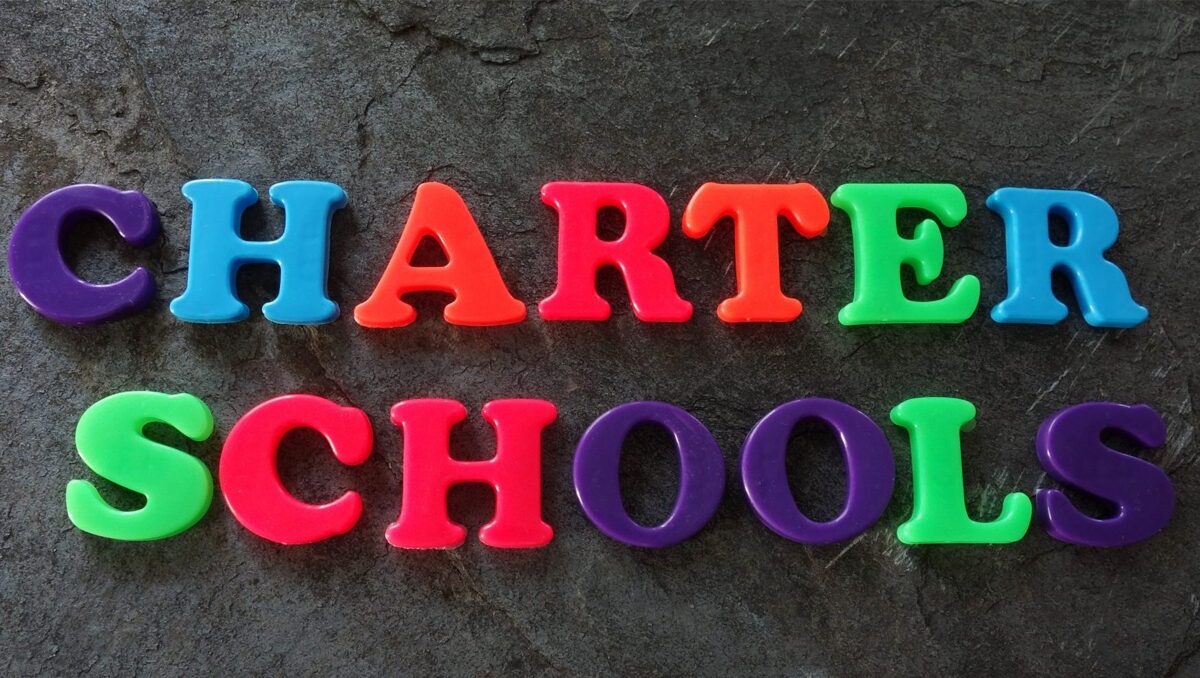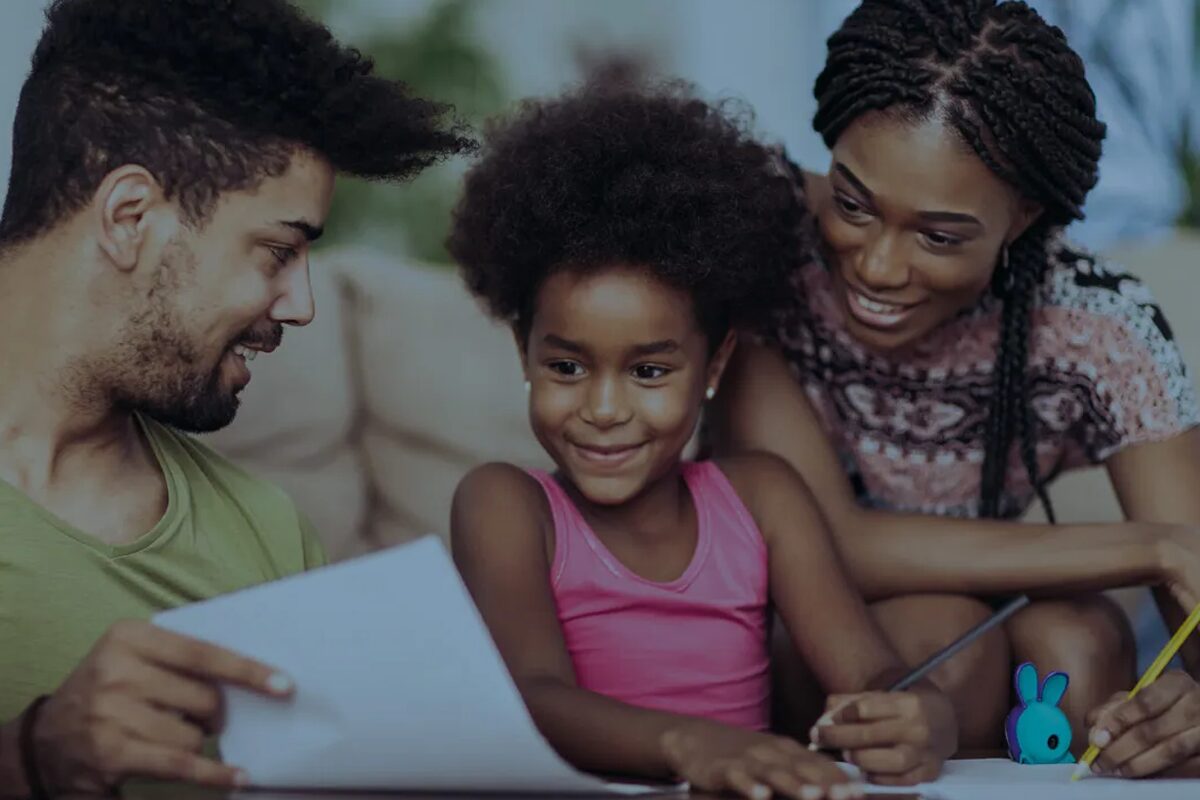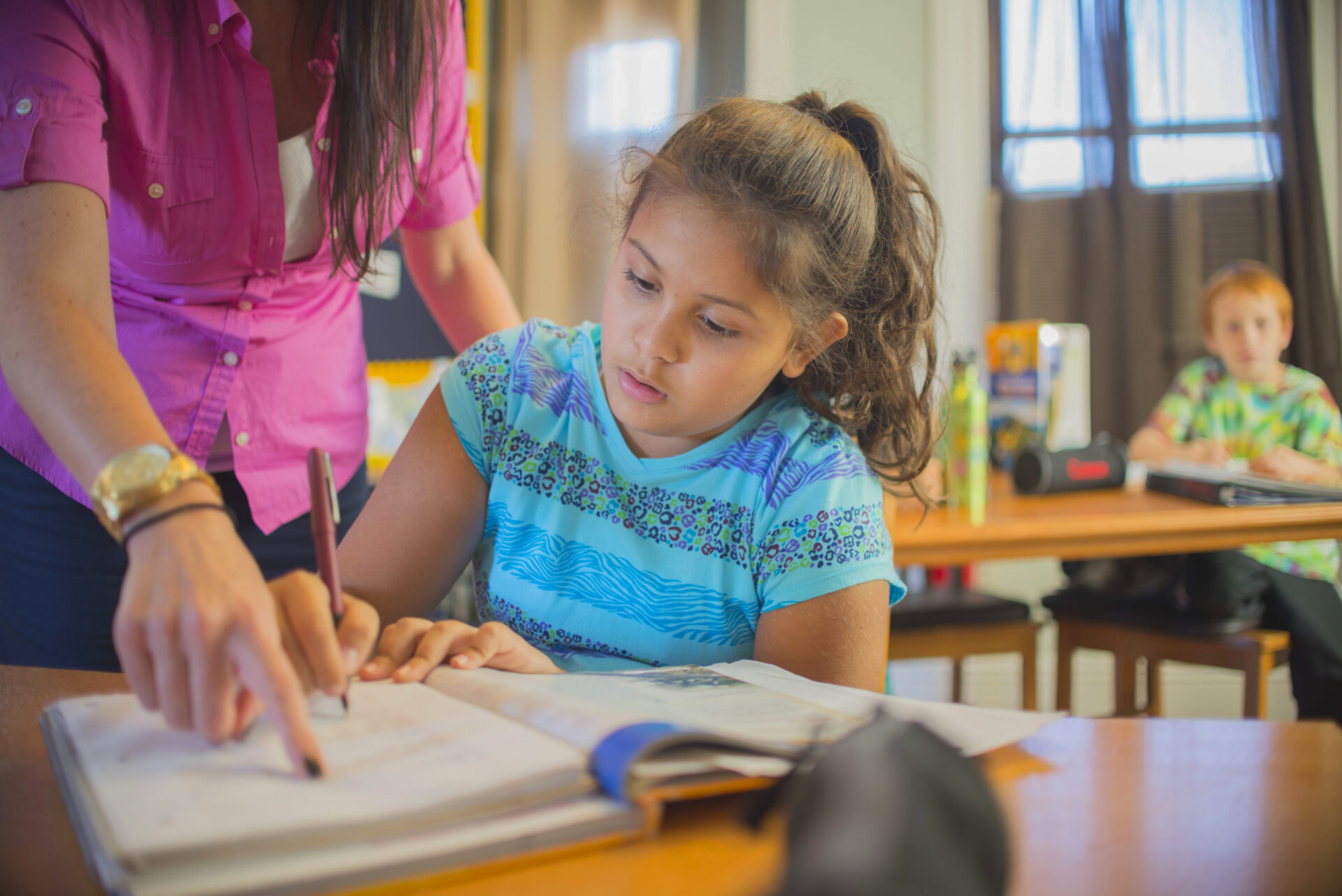
Parents Should Be Able to Observe their Children’s Classrooms Any Time
Erika Sanzi, former educator and education writer (and chief editor here at Project Forever Free), shared an article on Twitter about a proposed classroom observation policy in Rhode Island. Here’s an excerpt from the article:
One of the proposed policies would allow parents and guardians to formally observe their child in the classroom by sitting in on a class, provided they sign a confidentiality agreement. Importantly, the observer would not need to pass a background check as they would, in theory, always be accompanied by a staff member, and would only be able to make such an observation twice in any given academic year. Nevertheless, questions remain of what would happen should the observer’s chaperone have to leave the room, how to adequately ensure the observer is honest about their intentions and how such access would inevitably interfere with educators’ ability to do their jobs.
This turned into a Twitter discussion about parents’ rights when it comes to classroom observations. My immediate response on Twitter to this post was, “I disagree that I should have to give you a heads up that I’m coming. My tax dollars are paying for this education, and I should be able to observe whenever. Parents, at my sons’ school, could come in unannounced until this school year.”
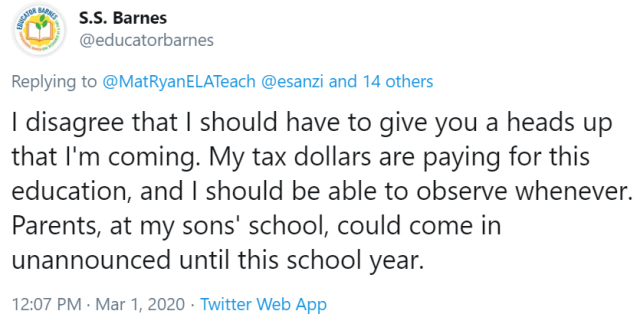
I have been an advocate for parents observing in the classroom. I observed my sons this school year when my school was closed for fall break, but their school was open. I wrote about the why behind my visits a couple of days later in the piece, “Parents Need to Observe Their Children at School.” Not only did I highlight some problems I observed, but I also mentioned the policy change I was met with upon my arrival and my feelings about it.
Last Friday, I showed up unannounced, like I did since my boys were in kindergarten. To my surprise, one of the front office secretaries told me there was a policy change, and parents have to arrange observations in advance. I live in Washington Township where we are under both a construction and operations referenda which means my taxes have continued to go up. If you are demanding more money out of my pocket to support the school, the least you could do is not make it a hassle for me to see what my money is supporting. The operations referendum goes toward supporting teacher salaries. I want to know if I’m getting my money’s worth. I drove home and emailed my sons’ teachers to get permission. One replied right away. I returned and sat in his class for 45 minutes. While I was there, my other son’s teacher stopped in to tell me I could come to sit in her class too. I sat in my other son’s class for about 35 minutes.
School leaders keep saying they want to partner with parents. This is not the way to do it. What’s up with the suggestion in Rhode Island to have parents sign a confidentiality agreement and only be allowed to come twice during a school year? There should be nothing confidential about what is going on inside of a public school classroom. People have had their lips zipped for too long about the atrocities that are taking place. Policies like that suggest teachers have something to hide.
High school English teacher, Matthew Ryan, asserted that he has nothing to hide but mentioned the observation timing might not be the best. Ryan shared in the Twitter discussion, “I wasn’t thinking in terms of hiding anything. Just logistics and the lesson. What if a parent came in during a testing period? They’d be welcomed to but I don’t think it would be a valuable experience.”
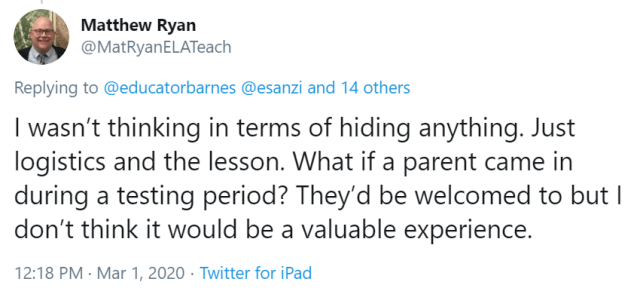
As an educator, I understand what he means. However, I would rather a parent come at an inconvenient time and feel welcomed in my classroom and the school instead of having a policy that states the observation must be scheduled in advance which might make some parents feel discouraged or believe the teacher might put on a show and not be his or her authentic self.
Bill Whitten countered and suggested there were some valid points in the article.

He does have a point; parents can speak about what they saw. I have done it. Schools are public places, and parents comment a lot online about what they observe on school grounds when they are inside of the school for arrival and dismissal, a program, to volunteer, etc. You are never going to control what people say online after they leave a public space. Like my mother always said, “If you are not doing anything wrong, you should not be worried about someone saying anything about you.”
One of my sons was called “the evil twin” at one of the preschools my sons attended. Guess how I found out? A parent observed this interaction and reported it. I will never support any confidentiality agreement being included in a classroom observation policy. If I see anything happening to my sons or anyone else’s children, I’m reporting it. I will follow up until consequences are issued or changes happen.
Of course, my viewpoints carry over into my educator’s role. When I was a teacher, I’m an admin now, I allowed parents to observe me unannounced. I have had grandparents, parents, and guardians observe in my classroom. Yes, I have had negative experiences. Twice, each incident occurring at a different school, parents made verbal threats to harm me upon entering the school. One parent was mad about an assignment. Another parent thought I had stolen her son’s coat. Videotape later revealed the student wore the jacket into science class and left without wearing it. Those parents were dealt with. They had restrictions placed on them based on their behavior. We must assume the best. It is hard to have a partnership with anyone when you do not.
For any teacher out there who doesn’t support parents observing unannounced, I hope you would reconsider your position. Here’s some food for thought that I provided in this conversation online. “I’m a black parent. This education system was not built for my children, so why do the participants in the system automatically expect my trust? Trust is earned. You are not earning my trust if I have not observed you in action.”
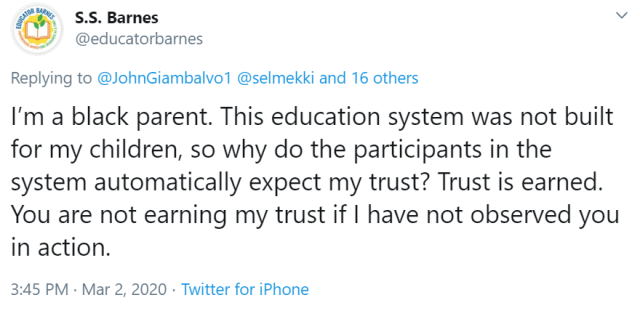
This piece first ran in its original version here at the bog IndyK12.



